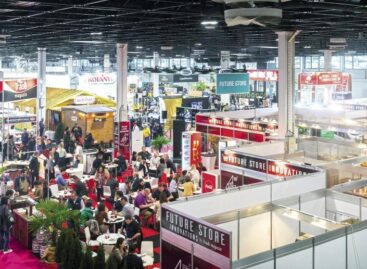With excellent quality against hunger
How can we fight hunger and promote sustainability with quality food and a full stomach? Many would immediately say no. But the answer is simple: with awareness. On October 16, World Food Day is celebrated in 150 countries, one of the main points of which is that food is a value. And by shopping consciously, everyone can contribute to eliminating food problems.

Sustainability and awareness go hand in hand. And their walk begins in households, including the purchase and consumption of food. By the way, it is becoming more and more fashionable to use these expressions today, yet few people act accordingly. Nowadays, the demand for healthy and environmentally friendly products is constantly increasing, and in many places we see the slogan “Make your own cleaning product!” or “Forget plastic packaging!” with calls. However, it is less emphasized that we can do at least the same for our environment with our meals. I go to the store, buy it, eat it. Eating is so simple and straightforward that many people don’t even think about how it could be otherwise. You can!
How? And what does KMÉ do about this?
The operation of the food supply chain, from production to consumption to waste, causes a huge environmental burden and affects our health as well.
If we change the way we produce, use and consume food, we have already done a lot to reduce our ecological footprint. The aim of the High Quality Food (KMÉ) is to find the best quality products and make them available to everyone. Why would we buy five types of salami to test – preferably by eating all five – which one is the best, if KMÉ does this for us? In addition, the quality system places great emphasis on protecting the environment during the production of products. The manufacturer or distributor of the product applying for the KMÉ trademark must also comply with sustainability aspects, in addition to the regulations guaranteeing food safety and high quality. Saving water, for example, is very important. The KMÉ trademark is currently one of the highest-level recognitions in Hungary in relation to foodstuffs. It is beneficial for manufacturers and distributors if their products receive more attention and thus more people look for them, thanks to which more and more people will be motivated for environmentally friendly technological innovations.
But that’s not enough!
31% of the food produced ends up in the trash. However, with pre-planned shopping and proper storage, a lot of food could be saved from spoilage. On World Food Day, the Nébih Maradék sélen program announces the measurement of household food waste for the 5th time. If you want to know how much food your household wastes and how much of it could be saved, or if you just want to help Nébih’s work in exchange for useful gifts, you too have the opportunity to participate in the measurement. Details and application from October 16 on maradeknelkul.hu.
KMÉ
Related news
SIRHA Budapest 2026 – The biggest domestic celebration of the HoReCa sector
🎧 Hallgasd a cikket: Lejátszás Szünet Folytatás Leállítás Nyelv: Auto…
Read more >dm welcomes customers with stable prices and a superb price-value ratio
🎧 Hallgasd a cikket: Lejátszás Szünet Folytatás Leállítás Nyelv: Auto…
Read more >








